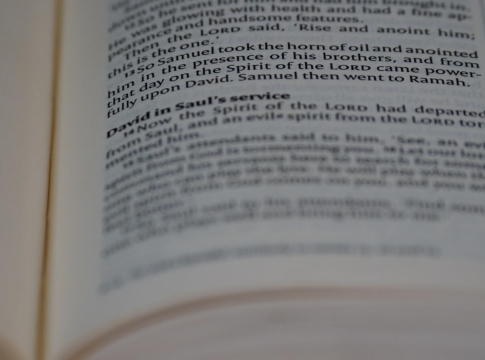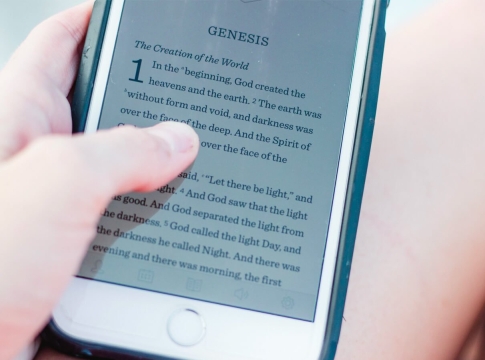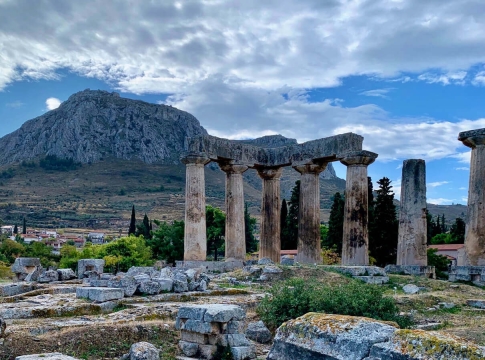
What kind of book is Ecclesiastes?
Wisdom literature is the classification given to the book of Ecclesiastes. It is an analysis of what life’s purpose is. This book is not intended to be a manual for readers to follow, nor does it offer a list of indisputable truths or direct revelations from God. This book, instead, features two voices.
The “ecclesiastes,” or “preacher,” is the primary voice (Ecclesiastes 1:1). Speaking about his experiences in life, he is a man who can be pretty critical. The author, who has compiled the opinions of the critics and has the last say at the end of the book, is the other voice. He wants us to hear the preacher out and then analyze the information to come to our own judgment.
Who is the “Ecclesiastes”?
The book’s opening verse gives us a hint as to who the main speaker is: “the Preacher, the son of David, king in Jerusalem.” King Solomon may have been this person. We are aware of his extraordinary wealth and [wisdom]. This would be in perfect harmony with verses like Ecclesiastes 1:16 which states, “I have acquired great wisdom, surpassing all who were over Jerusalem before me, and my heart has had great experience of wisdom and knowledge,” and Ecclesiastes 2:9 which states, “So I became great and surpassed all who were before me in Jerusalem.”
This “son of David, king in Jerusalem” might, nevertheless, have been a later Davidian monarch. Since Solomon was just the second Israelite king to rule from Jerusalem, phrases like “surpassing all who were over Jerusalem before me” (Ecclesiastes 1:16) and portrayals of societal inequality and power abuse (Ecclesiastes 4:1-3; 8:10-11) would fit in better.
Key theme: vanity
The Hebrew word “hevel” is found in the book’s first verse (Ecclesiastes 1:2). There are 38 instances of this word throughout the entire text.
That is translated as “vanity” in the English Standard Version. However, its meaning is somewhat nuanced. The word “hevel” literally means smoke or vapor. This word is a metaphor for how fleeting life is, but it also conveys how confusing and unpredictable life can be. Life is magnificent, but you can’t hold onto it; it eludes your grip. Ecclesiastes 1:14 states, “I have seen everything that is done under the sun, and behold, all is vanity and a striving after wind.”
We humans can’t control life
Time and death, two central elements, render most of life utterly unpredictable. The pastor examines the two of them. For instance, see Ecclesiastes 1:3–4:
“What does man gain from working so hard under the sun? The ground never goes away, even when generations come and go.
Or verse 11:
“There is no memory of past events, nor will there be any memory of future events among those who follow.”
Our lives are fleeting moments. When “the dust returns to the earth as it was, and the spirit returns to God who gave it,” time will obliterate us and everything we’ve accomplished (Ecclesiastes 12:7). Because the fates of man’s offspring and beasts are identical—when one perishes, the other also does. Everybody breathes the same, and since all is vanity, man has no advantage over the animals (Ecclesiastes 3:19).
The common human solutions don’t work
Many people attempt a few different approaches in an attempt to discover purpose in life. After giving them a try, the ecclesiastes concluded they were ineffective.
Consider the case of wealth. The pastor was full of it. He talks about homes, gardens, vineyards, slaves, enormous herds and flocks of property, silver, gold, concubines, and so on. Nevertheless, Ecclesiastes 2:11 states, “Then I considered all that my hands had done and the toil I had expended in doing it, and behold, all was vanity and a striving after wind, and there was nothing to be gained under the sun.”
Experiencing pleasure or wisdom-gaining is another prevalent objective. Ecclesiastes attempted both of these, but they likewise proved to be “hevel.” Ecclesiastes 2:13, “Then I saw that there is more gain in wisdom than in folly, as there is more gain in light than in darkness,” demonstrates that they are not entirely useless. Pleasure, intellect, and wealth all have benefits. Ultimately, though, none of them are able to truly add significance to life.
How then should we live?
The pastor now realizes that we have no control over life. According to Ecclesiastes 5:18, he counsels us, then, “to eat and drink and find enjoyment in all the toil with which one toils under the sun the few days of his life that God has given him, for this is his lot.” Ecclesiastes 7:14 states, “In the day of prosperity rejoice, and in the day of adversity remember that God made both the one and the other, so that man may not find out anything that will be after him.”
Thus, the book of Ecclesiastes makes it very evident that trying to manage life or find meaning and purpose in it outside of God is “vain.” Vanity exists in everything under the sun. We must consider what is beyond this planet. We must have an attitude of faith in God. Then, even though there is no assurance that we will [always obtain what we want], we can rejoice in what He offers.
The author’s conclusion – lessons for us!
The author assesses the preacher’s remarks in the final chapter. He claims that the ecclesiastes’ statements “are like goads, and the collected sayings are like nails firmly fixed; they are given by one Shepherd” (Ecclesiastes 12:11). So, the purpose of these words is to guide us in the proper way. In the end, they originate with God. These phrases can assist us in gaining the proper perspective on life on Earth.
“Fear God and keep His commandments, for this is the whole duty of man,” is the final piece of advise. Because God will judge every secret matter, good or evil, along with every deed (Ecclesiastes 12:13–14). While fearing the Lord is the correct thing to do, it does not ensure success in life. In the end, God will remove the “hevel” and exact his retribution for what we have done.
See also
The Bible Project’s video below provides a quick synopsis of the Book of Ecclesiastes:
You can better grasp Ecclesiastes’ role in the Biblical wisdom literature by watching this video, which is also produced by The Bible Project:





